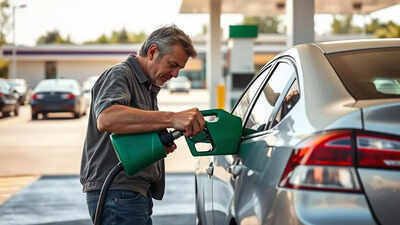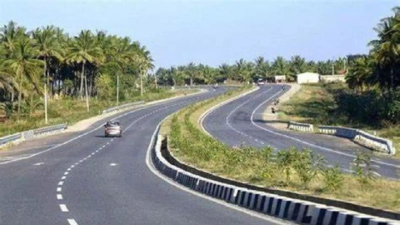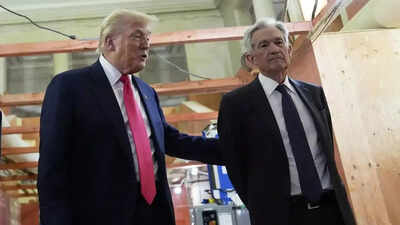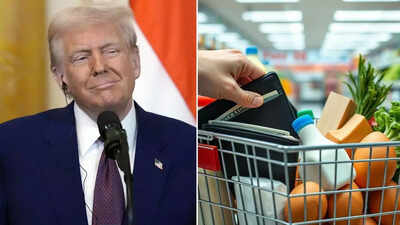‘Creating false narrative’: Oil ministry reacts to ‘fear mongering’ on 20% ethanol-blended petrol on vehicles; Here’s what it said

The ministry of petroleum and natural gas on Tuesday strongly rejected what it calls “fear-mongering” over the performance and safety of E20 fuel, a blend of 20% ethanol and 80% petrol, saying claims of drastic fuel efficiency loss and insurance issues are “misplaced” and “creating a false narrative.”In a detailed press release on Tuesday, the ministry defended the government’s ethanol-blending programme, listing multiple benefits and clarifying that E20 fuel does not void vehicle insurance in India.“The use of E-20 gives better acceleration, better ride quality and most importantly, lowered carbon emissions by approximately 30% as compared to E10 fuel. Ethanol’s higher-octane number makes Ethanol-blended fuels a valuable alternative for higher-octane requirements that is crucial for modern high-compression engines,” the ministry said, referring to petrol blended with 10% ethanol.It also pointed out ethanol’s higher-octane number about 108.5 versus petrol’s 84.4, as a performance booster for modern high-compression engines.
Acceleration, emissions, and engine performance
According to the ministry, vehicles tuned for E20 deliver noticeably better acceleration, which is important in city driving conditions. “Vehicles tuned for E20 deliver better acceleration which is a very important factor in city driving conditions. Additionally, Ethanol’s higher heat of vaporisation reduces intake manifold temperatures, increasing air-fuel mixture density and boosting volumetric efficiency,” it said.“Previously petrol was being sold in India with Research Octane Number (RON) of 88. Today, regular petrol in India has a RON of 91 to meet the requirements of BS-VI emission norms. This has now been further improved to RON 95 with blending of E20, resulting in better anti-knocking properties and performance,” it added.
Insurance ‘fear-mongering’
The ministry further took aim at social media posts claiming that insurance companies will not cover damage caused by using E20 fuel. It made it clear that critiques suggesting that E20 causes a ‘drastic’ reduction in fuel efficiency are “misplaced.” “Some seek to derail it by fomenting fear and confusion in the minds of car owners by selectively picking information and creating a false narrative that insurance companies will not cover car damage due to use of E20 fuels. This fear mongering is totally baseless and has been clarified by an insurance company whose tweet screenshot was deliberately misinterpreted to create fear and confusion. Usage of E20 fuel has no impact on the validity of insurance of vehicles in India,” it stated.
Fuel efficiency debate
Concerns about E20 causing a “drastic” drop in mileage have been growing online. Some posts cited that ethanol’s lower energy density (29.7 MJ/kg compared to petrol’s 46.4 MJ/kg) to argue that ethanol produces less energy per litre.The ministry acknowledged ethanol’s lower energy density but stressed that the real-world efficiency drop is small. “Vehicle mileage is influenced by a variety of factors beyond just fuel type. These include driving habits, maintenance practices such as oil changes and air filter cleanliness, tyre pressure and alignment, and even air conditioning load,” it said.It added that for some manufacturers, vehicles have been E20-compatible since as far back as 2009, meaning “the question of any drop in fuel efficiency in such vehicles does not arise.”
Economic and environmental gains
Ethanol blending has been a key part of India’s energy strategy, aimed at reducing crude oil imports, cutting emissions, and boosting rural incomes.At 20% blending, it is expected that payment to the farmers in this year alone will be to the tune of Rs.40,000 crore and forex savings will be around Rs. 43,000 crores.“More income to farmers has not only contributed to furthering their well-being but has also helped decisively tackle the challenge of suicides by farmers. It may be recalled that in areas like Vidarbha farmers suicides were widespread a few years ago,” it added.A NITI Aayog study found greenhouse gas emissions “in case of use of sugarcane and maize based Ethanol are less by 65% and 50%, respectively than those of petrol.”“In addition to pollution reduction, there have been transformative benefits in terms of benefits to the rural economy, elimination of sugarcane arrears and improving the viability of maize cultivation in the country,” it added.
Programme costs and price concerns
Some have argued ethanol-blended petrol should be cheaper than pure petrol. The ministry clarified that while ethanol was cheaper when the 2020–21 NITI Aayog report was prepared, procurement prices have since risen.Currently, the average procurement cost of ethanol is Rs 71.32 per litre (including transport and GST), with maize-based ethanol costing Rs 71.86 per litre. For comparison, C-heavy molasses-based ethanol has risen from Rs 46.66 in 2021–22 to Rs 57.97 in 2024–25.Despite ethanol now costing more than refined petrol, the ministry said oil companies have not rolled back blending because the programme delivers on energy security, farmer incomes, and environmental goals.
India’s ‘bridge fuels’ transition strategy
The ethanol programme, the ministry noted, is part of India’s “bridge fuels” strategy alongside natural gas, supporting the country’s pledge to achieve net zero emissions by 2070.Going back to unblended petrol (E0), the ministry warned, would mean losing hard-won gains in pollution reduction and energy transition.
Support for vehicle owners
Automobile manufacturers, in coordination with the Society of Indian Automobile Manufacturers (SIAM), continue to assist vehicle owners in optimising performance with E20 fuel.“In the meanwhile, automobile manufacturers continue to engage with vehicle owners to provide them any support that may be warranted to ensure optimum performance of vehicles. For a vehicle owner, who believes that his/her vehicle may require further tuning or parts replacement, the entire network of authorized service stations are available to respond to such requests,” the statement added.







